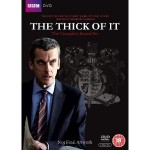 You know that scene in “Titanic” when the Belfast born engineer (Played by Victor Garber, by the way) is looking through the plans of the ship, and is shown where the hull has been ruptured, and he realises, way ahead of everyone else, that the ship is finished? You can’t help thinking that there are rational people in Fianna Fail who realise that too. The question is now, how many people can they safely get off the ship? More importantly, can they use the iceberg at all?
You know that scene in “Titanic” when the Belfast born engineer (Played by Victor Garber, by the way) is looking through the plans of the ship, and is shown where the hull has been ruptured, and he realises, way ahead of everyone else, that the ship is finished? You can’t help thinking that there are rational people in Fianna Fail who realise that too. The question is now, how many people can they safely get off the ship? More importantly, can they use the iceberg at all?
A Fianna Fail pal of mine summed up the situation well: The Taoiseach has basically given up on the next election, and is now taking an almost masochistic pleasure in making “the hard decisions” regardless of the political cost. This is all very noble, and in fairness, what we always say we want politicians to do, putting national ahead of political interest. But he can still ward off total disaster for FF. He won’t win the next election, in fact, if FF did win the next election there would almost be civil unrest and questions about the integrity of the voting system. But he can stop FF from suffering from an unrecoverable “below the waterline” breaching.
How? Our whole political landscape is based on FF and the Greens inflicting cruel pain upon the country, and FG/Labour offering a less painful alternative. This is compounded by a shocking level of economic illiteracy amongst voters. I still, even in these days, meet people who want to know why the government won’t pay for X or Y, and don’t connect their taxes with government spending.
If I had the technical ability I’d set up a website where a voter could easily see what is spent on what, how much comes in in taxes and how much goes out. I think, for example, that the average voter would be surprised by how much of the budget is spent on public sector pay and pensions. Most importantly, I’d like the public to be able to “play around” with the budget. Let them click a box that gets rid of the government jet, and cuts politicians’ salaries in half, and let them see how little that actually does. And let them play with tax rates, and tax the rich, and scrap pension deductions, and see how you need to tax middle earners more before it really starts to have an impact. Let them tick a box that implements FG and Labour policy, including their spending promises and the effect on taxes that has. And let us have a means of devising the tax impact on ordinary voters on a weekly basis. We are talking about a form of easily accessible economic “SimCity” here, and most of all, it should be fun to use.
I know, a website is not going to solve everything, but we need to be able to communicate the detail and the scale of the problem in a way digestible to a modern audience. Perhaps a project for Ogra Fianna Fail?
On a seperate note, I’ve been asked recently am I now pro-FF? It’s a fair question. I’ve never voted FF (no.1) in a general election. But what I see now is a party that is making the right economic decisions, and also, by facing down the anti-civil partnership people in its own ranks, and acting quickly on Ivor Callely, to have shown itself to be able to occasionally able to grasp modern reality. It’s still the party of Noel O’Flynn and Beverly Cooper Flynn, but every party has its own dark places. I remember one PD candidate demanding that the death penalty be restored and that Gardai be allowed resolve situations “with their fists”. The other side is that Labour, whilst being honest and socially reforming, is openly hostile to people like me who work in the private sector, and Fine Gael with its “Up Mayo!” carry-on has shown itself to be a party that lacks seriousness. The fact that Fine Gael and Labour cannot agree now as to what their programme for government will be means that I’d have no idea what I would get by voting Labour or FG. FF is currently the devil I know, and I suspect I’m not alone in that.

 In other countries new situations bring change. In the US, Barack Obama was elected. In the UK, a coalition is in power. In Ireland…sigh. Here we have an bitterly unpopular government, yet the lead opposition party still fails to raise any excitement. Why is that?
In other countries new situations bring change. In the US, Barack Obama was elected. In the UK, a coalition is in power. In Ireland…sigh. Here we have an bitterly unpopular government, yet the lead opposition party still fails to raise any excitement. Why is that?

 It’s getting difficult to look at Michael Sheen without thinking of Tony Blair, and
It’s getting difficult to look at Michael Sheen without thinking of Tony Blair, and